Snorkeling is the easiest way to get a look at the incredible sights underwater.
But if it’s making you feel nauseous, then it’s no fun at all and can be highly frustrating.
There are many different reasons why you might feel sick when you’re snorkeling.
Whether it’s the boat ride to the snorkel spot, the sea conditions when you get there, or something else, we will take a look at all the problems that can make you feel unwell.
Luckily we’re going to see that there are lots of things that you can try that can help get you back to enjoying snorkeling fun.
So, with eyes firmly fixed on the horizon, let’s investigate what could be making you feel bad.
- Is Nausea While Snorkeling the Same as Seasickness?
- Can Anyone Get Nauseous When Snorkeling?
- 11 Things That Can Cause Nausea When Snorkeling
- 11 Tips To Avoid Nausea When Snorkeling
- 1. Seasickness Medication or Patches
- 2. Natural Remedies
- 3. Stay Hydrated and Make Sure You’ve Eaten
- 4. Manage the Boat Journey
- 5. Limit Head Movement and Relax
- 6. Try Ear Plugs
- 7. Avoid Snorkeling in Swells, Waves, or Deep Water
- 8. Use a Dry Snorkel That Fits Your Mouth
- 9. Breath Slowly and Deeply and Don’t Over Exert
- 10. Leave Photography to Someone Else
- 11. Check the Sea Forecast and Avoid Rough Waters
- What To Do If I Start Feeling Nauseous While Snorkeling?
- Is It Safe To Throw Up While Snorkeling?
- Can I Get Nausea After Snorkeling?
- If I Get Nausea Once While Snorkeling, Will I Always Get It?
- Is Sea Sickness Common on Snorkel Boat Trips?
- Conclusion
- You Might Also Like…
Disclosure: this post contains affiliate links (clearly marked with ), which means we may earn a commission if you buy something through them, at no additional cost to you.
Is Nausea While Snorkeling the Same as Seasickness?
Seasickness, or perhaps more accurately motion sickness, comes about when your senses disagree with each other and can cause horrible feelings of dizziness and nausea.
The leading cause is when your inner ear, which primarily controls your balance, gives signals to your brain that differ from those it’s receiving from your other senses, like the eyes.
This can cause nausea, an English word used generically for a feeling of sickness, but that appropriately came originally from the Latin for seasickness.
Other symptoms can include:
- dizziness
- increased saliva production
- loss of appetite
- loss of skin color
- headaches
- fatigue
- shallow breathing.
When you’re on a boat, the seasickness is usually caused by repetitive pitching or rolling movement.
Your inner ear detects the movement up and down or side to side and reports it to your brain.
The problems occur when your eyes or your body tell the brain that you’re not moving in the same way.
This sensory mismatch causes confusion and makes you start to feel nauseous.
Interestingly, it is suggested that we feel sick because the conflicting information from our senses causes our brain to guess that a poison has been ingested.
The evolved automatic response to this is to internally induce vomiting to try and get rid of the poison.
But how can you get seasick when you’re snorkeling?
Just like on the boat, you can be subject to movements in the water while snorkeling that is measured by your ears but doesn’t match what your eyes see or the rest of your body feels.
So, you can feel “seasick” when snorkeling.
When you’re snorkeling, other factors can increase the difference in perceived movement, and other reasons can also make you feel sick.
We’re going to take a look at all the possible causes below.
Can Anyone Get Nauseous When Snorkeling?
If you’re someone that suffers badly from motion sickness already, then you’re probably well aware that other people in the same situation can feel just fine while you are suffering terribly.
In the same way, different people are more susceptible to nausea when snorkeling.
If you experience motion sickness in a car, you might feel it when snorkeling, especially if sea conditions are rough.
Why different people experience motion sickness differently isn’t known for sure.
But it’s clear that for some reason, some individuals are more sensitive to mental confusion in what the body senses than others.
It has been considered that motion sickness might run in families or be acquired or eliminated as babies and children.
In terms of snorkeling, anyone can suffer from nausea. It usually just depends on how bad the sea conditions are.
11 Things That Can Cause Nausea When Snorkeling
1. Movement of the Water
If the water you’re snorkeling in has many waves, you’re likely to feel nauseous from the movement.
Additionally, currents, tides, and swells cause water movement that your eyes may not perceive readily, but your ears will feel.
As you move up and down or sideways, the inner ears pass this information on, and if it mismatches what your eyes are telling your brain, you might start to feel unwell.
Typically, the more substantial the water movement, the worse your nausea will be.
2. Excessive Head Movement
New snorkelers, in particular, tend to move their heads around a lot.
Whether it’s from trying to orientate themselves, worrying about getting too far from their boat or buddy, or just trying to see as much underwater as possible, all the head movement can make you feel worse.
3. Pressure Changes in Your Ears
As well as movement, your inner ear can detect pressure changes that can add to your brain’s confusion.
The biggest problem comes when there is a difference in the pressure felt by one ear compared to the other.
When you’re snorkeling, changes could come from duck diving and not equalizing successfully, leaving a lasting difference in pressure felt.
It can also be caused by waves leaving one of both ears going in and out of the water constantly.
4. Incorrect Breathing
Hyperventilating can leave you feeling lightheaded, which can add to your nausea.
Breathing too shallow can cause you to experience carbon dioxide buildup, which can similarly leave you feeling sick.
5. Swallowing Seawater
If you end up swallowing saltwater through your snorkel, then you’ll end up feeling sick.
Strong salt solutions cause an immediate vomiting reaction from the stomach.
6. Acid Reflux
If you’re feeling unwell when you’re horizontal in the water but feel ok when you get vertical, then it could be that you are suffering from acid reflux that can be caused by snorkeling too soon after a heavy or spicy meal.
7. Gag Reflex
Some people suffer badly from the effects of the snorkel mouthpiece on their mouths.
A mouthpiece that extends too far in can cause a gag reflex that can feel like nausea.
8. Anxiety
Someone who feels nervous about snorkeling for whatever reason can experience nausea that might be interpreted as seasickness.
It’s essential to try and address what the cause is in case it’s not immediately apparent.
9. Overly Concentrating on Photography
Snorkelers that like to photograph are often more likely to suffer from seasickness.
Focusing on the stationary object close to you while the background is moving and you are bobbing around in the water can add to your brain’s confusion.
10. Being Overly Buoyant in Rough Water
While life jackets are necessary for safety reasons for anyone who isn’t a strong swimmer, they can worsen snorkeling seasickness.
With a life jacket, you’ll tend to float higher on the water surface than usual, and accordingly, your level of movement will probably be more significant.
11. Dehydration or Lack of Food
Dehydration or not having appropriately eaten can make nausea from seasickness worse.
While you don’t want to snorkel immediately after a heavy meal, some food is needed to keep settled for many people.
11 Tips To Avoid Nausea When Snorkeling
1. Seasickness Medication or Patches
If you know that you suffer from seasickness, then it’s a good idea to consider taking medication before you set off.
Remember that you must always follow the directions carefully and that some medications need to be taken a day or two in advance to be effective.
You should also be aware that some motion sickness treatments can cause significant drowsiness that you might want to avoid.
Make sure that you always ask your doctor before taking any medication if there are any concerns.
Many people get great results from preventative wristbands for swimmers that use specific acupressure points that lower nausea.
For severe seasickness, prescription-only patches can work very well if you’re planning a lot of snorkeling.
If you do suffer from frequent acid reflux, remember to take antacids before getting in the water.
2. Natural Remedies
If you prefer not to take medications unless necessary, many natural remedies can help combat motion sickness.
Ginger sweets, ginger pills, or natural ginger root are all said to help to counteract nausea.
Ginger is said to contain chemicals that relax the digestive system, and sufferers of seasickness have found that eating reasonable quantities can help them feel better.
Natural peppermint oil can be sniffed, and sucking on peppermint candy can also work well.
Often you’ll have to experiment to find what and how much works for you.
Remember to always consult a doctor first if you have any allergies or medical conditions.
3. Stay Hydrated and Make Sure You’ve Eaten
Make sure that you’re drinking sufficiently to avoid dehydration.
Avoid excessive alcohol the night before you’re snorkeling, and never drink alcohol before you get in the water.
Remember that drinks like tea, coffee, and cola can dehydrate you, so stick to water and juices.
Although snorkeling is usually relaxing, it’s easy not to realize you are dehydrating as the water keeps you cool as you swim along.
Water lost from sweating and excretion needs to be replaced before it becomes a problem.
While it might sound contradictory, you do need to eat before you go snorkeling.
Eat a good meal two to three hours before getting onto the boat or getting into the water.
Eat healthily and avoid foods that are greasy, acidic, or spicy.
Make sure that you leave it long enough between eating and snorkeling, as undigested food in your stomach combined with moving in the water will certainly make you feel unwell.
4. Manage the Boat Journey
The good news is that most people feel more comfortable once they are in the water snorkeling than they do on the boat.
So if the conditions aren’t ideal, these are some things you can do to help arrive at the snorkel spot feeling as happy as possible.
Small Boats Often Feel Worse
You’ll probably notice that you’ll feel worse on smaller boats as they tend to move more.
If possible, book your snorkel trips on larger vessels.
Avoid Going Below Deck
If you can’t see the natural world around you to help your brain know what’s going on, you’ll almost certainly feel worse.
Staying outside also has the benefit of giving you fresh air, which can often help.
Keep Watching the Horizon
Keeping your eyes on a solid visual reference can make a massive difference to your brain making sense of what is going on and reducing your nausea.
Find the Most Stable Part of the Boat
Different types of boats have different areas that are stable, and it can also depend on the sea conditions.
It can be around the middle area on many boats, but it could also be right at the stern.
Ask the boat crew where the best place to rest is.
It’s usually a good idea to avoid the bow or to be high up as this is where the most dramatic movements are likely to be.
Avoid Strong Smells
Try and stay away from any strong smells like engine fumes, cigarette smoke, or toilets.
Try Not To Move Around Too Much
The less you move about, the less you contribute to your brain’s general confusion about how you’re moving.
Stay Cool
Stay in the shade or wear a hat to keep the sun from your face and head.
If you’re wearing a wetsuit, take it off between stops so you don’t overheat.
Try Standing
Many people feel better if they’re standing for the journey rather than sitting as they can anticipate the boat’s movement. which can help alleviate some feelings of nausea.
5. Limit Head Movement and Relax
Once you’re snorkeling, try to keep your head movement to a minimum and enjoy the experience.
If you start to feel unwell, focusing on one spot of the seabed can help.
6. Try Ear Plugs
Swimmers earplugs can help with motion sickness while snorkeling as they restrict water from splashing in and out of the ear and causing rapid pressure changes.
You must make sure that the earplugs you use are suitable for swimming in, and if you plan to duck dive, then vented plugs suitable for scuba diving need to be used.
You must not duck dive with non-vented plugs as you can severely damage your ears.
7. Avoid Snorkeling in Swells, Waves, or Deep Water
Ultimately the best way to avoid nausea while snorkeling is to snorkel in calm water.
If you need to wear a life jacket to be safe, snorkeling in calm waters will be far more comfortable.
Snorkeling in shallow water can be easier if you feel motion sickness.
You’ll generally find it easier to stay visually orientated, and you can often stand up if you need to steady yourself.
8. Use a Dry Snorkel That Fits Your Mouth
A good dry snorkel will mean that you’re less likely to end up swallowing seawater.
If you suffer from a sensitive gag reflex, then look for a comfortable low-profile mouthpiece.
9. Breath Slowly and Deeply and Don’t Over Exert
It’s important to breathe slowly and deeply when you’re snorkeling.
Breathing too shallow can cause carbon dioxide to build-up that can cause or add to a feeling of nausea.
Many snorkelers find that counting slowly as they breathe in and out with full breaths helps them slow down and relax.
10. Leave Photography to Someone Else
If you are suffering from snorkeling nausea, it’s best to let someone else take the photos.
Relaxing and allowing your brain to focus on the bottom is better than paying attention to close-by objects.
11. Check the Sea Forecast and Avoid Rough Waters
Take local advice and avoid heading out if the weather will be bad or if it’s an area that typically suffers from rough water.
It could be that you need to time your trip to avoid significant tidal movements, so there is less swell or lighter currents.
While we’ve looked at many different things that you can try, ultimately, if you do suffer badly, then all that’s left may be to stick to snorkeling in shallow, calm water.
What To Do If I Start Feeling Nauseous While Snorkeling?
The first thing to do is stop swimming.
If possible, stand or get yourself vertical in the water to get your ears above the surface.
Orientate yourself to the horizon or land and breathe slowly and deeply.
If you don’t start to feel better, then slowly make your way to the boat or shore with assistance from your snorkel buddy.
Is It Safe To Throw Up While Snorkeling?
If you need to, then you must.
Remove your snorkel and try to stay as vertical as possible so that your mouth is above the water surface.
If there are waves, then try and position yourself so that they are onto your back.
Don’t worry about making a mess.
It’s more important that you keep your head up and don’t inhale any seawater.
Get assistance from your buddy or the snorkel guide, and get back to the boat or shore.
Can I Get Nausea After Snorkeling?
Many people suffer from feelings of dizziness or even nausea after they get out of the water and back onto dry land.
This can come from your brain getting further confused after getting used to the movement in the water.
It can also be from water or congestion in the ears creating a pressure imbalance.
Rinse your ears gently with fresh drinking water and allow them to dry naturally.
If you’re unsteady, continue the usual advice of looking to the horizon and ensuring you are well hydrated.
If I Get Nausea Once While Snorkeling, Will I Always Get It?
It’s likely that if you suffer from motion sickness that it will occur again.
Remember that it might just have been that the conditions were particularly rough.
Try and use our list of potential causes to identify what might have led you to feel sick to see if there’s anything that you can do differently next time.
Consider our suggested solutions, including using medications and herbal remedies.
It is possible that once you become more experienced and comfortable at snorkeling that motion sickness can reduce or even go away, so you shouldn’t give up just yet.
Is Sea Sickness Common on Snorkel Boat Trips?
Snorkel boats are often filled with excited visitors that are not the most experienced with being on the ocean.
When you combine that with excursion operators eager to take you to the best snorkeling spots in sea conditions that might not necessarily be ideal, then the occurrence of seasickness is understandably quite common.
Follow our advice to make the journey as easy as possible and try to stay away from anyone else suffering.
Conclusion
Feeling nauseous when snorkeling is unfortunately quite common, particularly for beginners.
Many different things can cause you to feel unwell, and you might have to take the time to work out what is affecting you.
If you suffer from motion sickness, then plan to take a suitable treatment sufficiently in advance.
Avoid alcohol or heavy meals the night before.
On the day itself, make sure that you’ve eaten in advance and stay hydrated.
Take advice on sea conditions and if you’re heading off on a boat, stay outside and enjoy the view of the horizon.
Motion sickness sometimes gets to everyone, so if it does happen, try not to worry about it too much.
Remember that it will always help to attract more fish to see!
You Might Also Like…
-

Can You Drown Snorkeling? 11 Common Reasons (+Helpful Tips)
-

Can I Use Snorkeling Fins for Bodyboarding? Pros & Cons (+6 Tips)
-

What Colors to Avoid When Snorkeling? (& Which You Should Wear)
-

Is It Safe to Fly After Snorkeling? What You Should Know (+4 Tips)
-
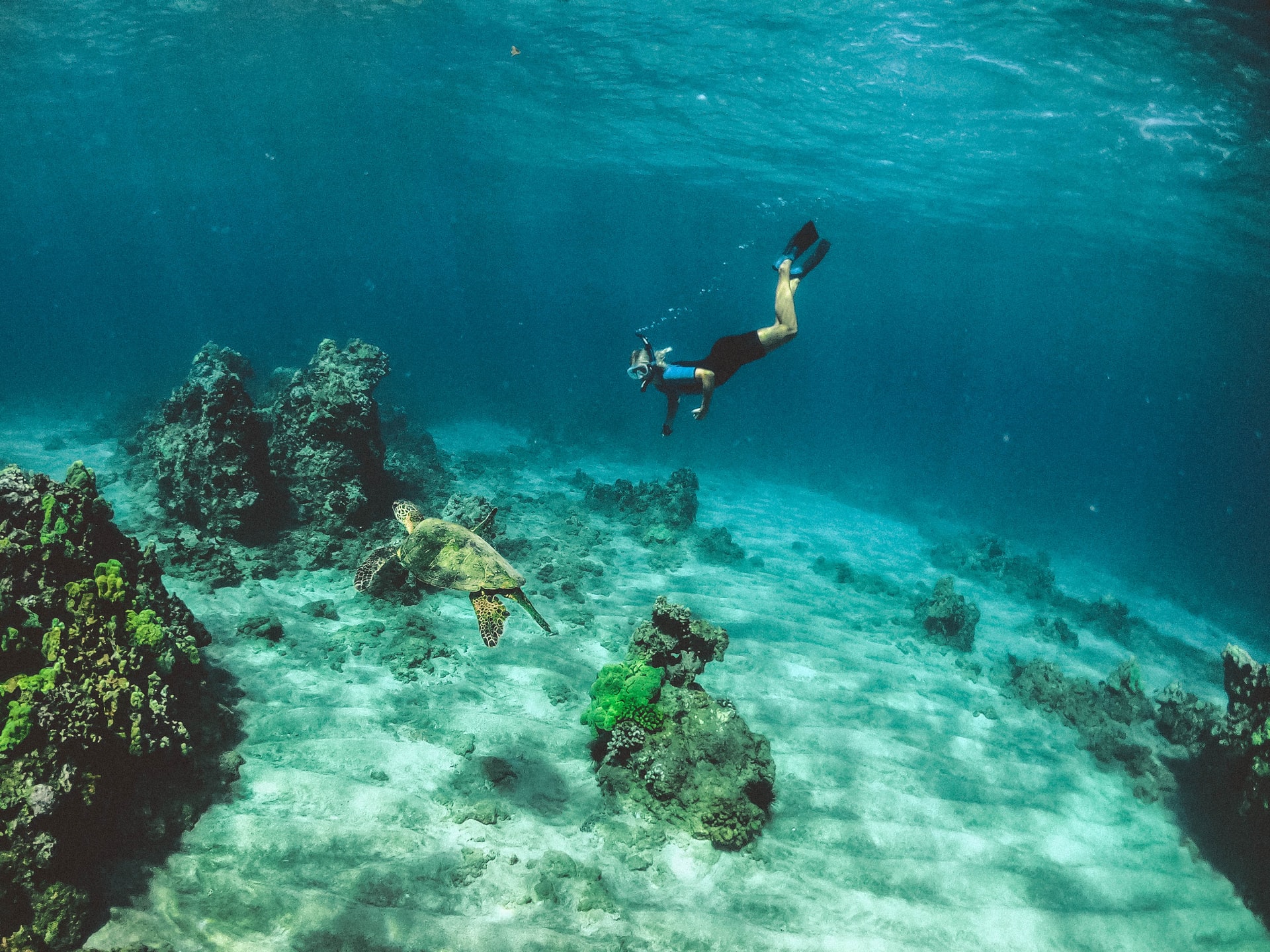
Can’t Hear After Snorkeling? 3 Possible Causes (& Solutions)
-
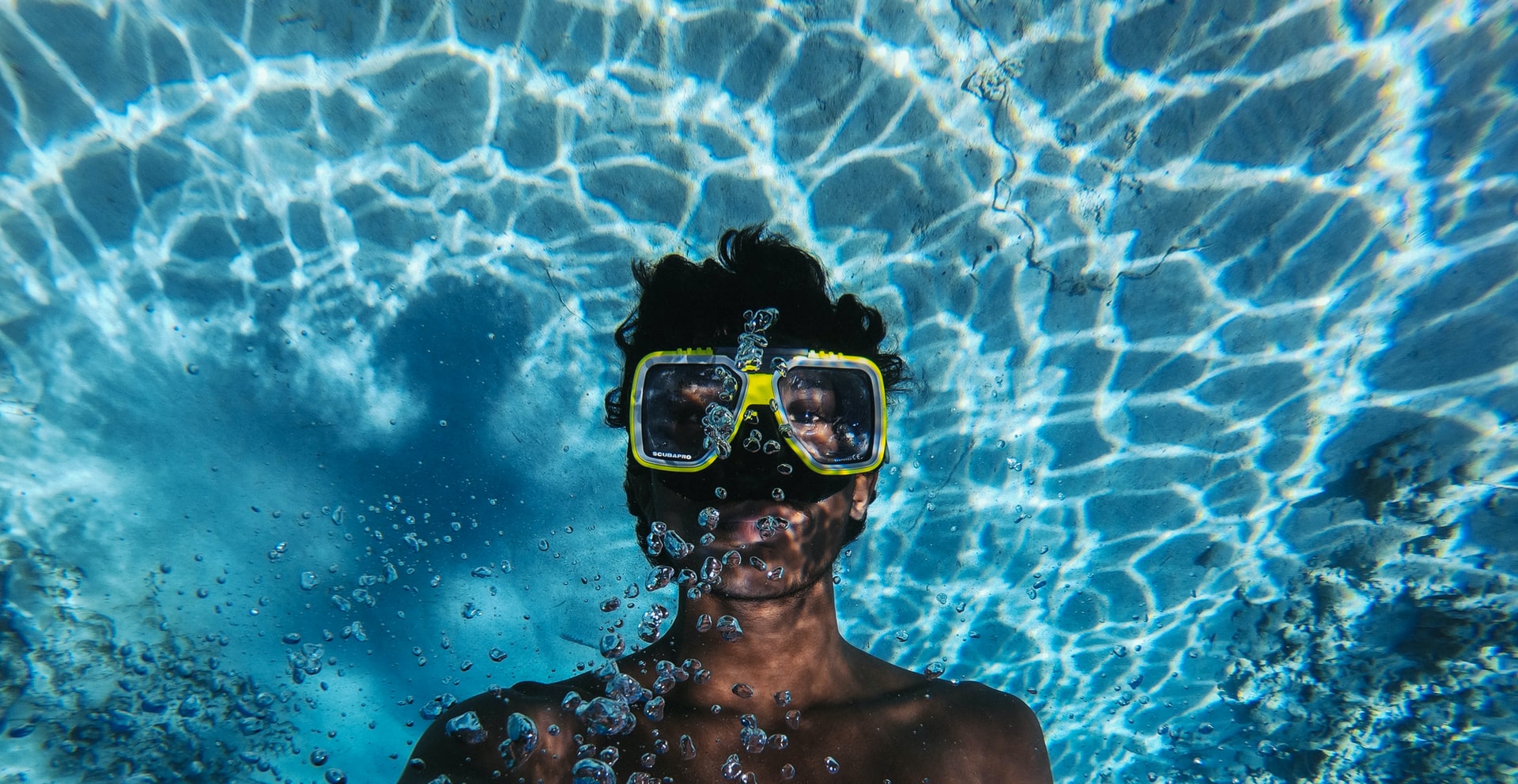
Can Snorkeling Cause a Sinus Infection? (+9 Tips to Avoid It)
-
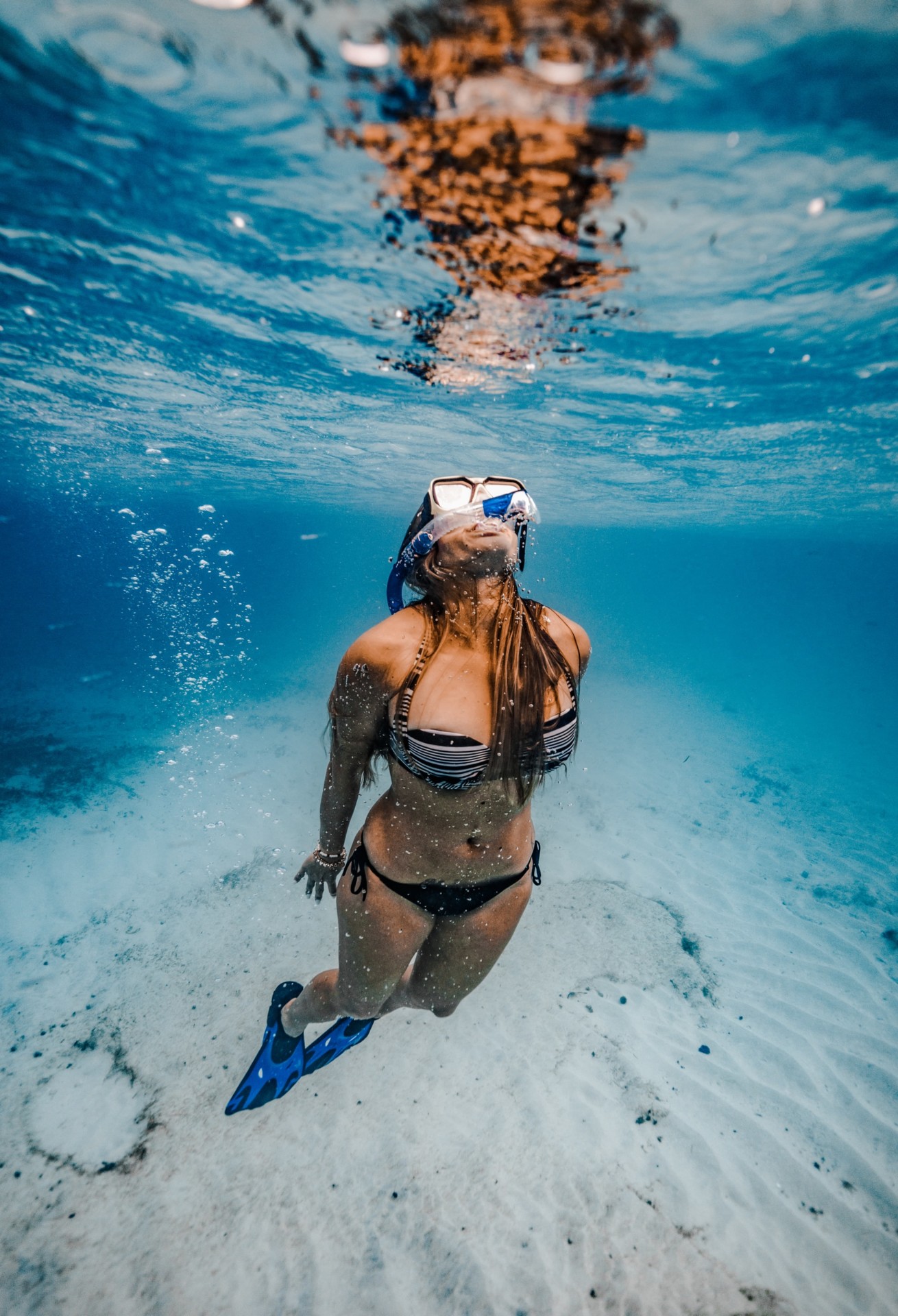
Can Snorkeling Cause a Sore Throat? 8 Common Causes (+Tips)
-
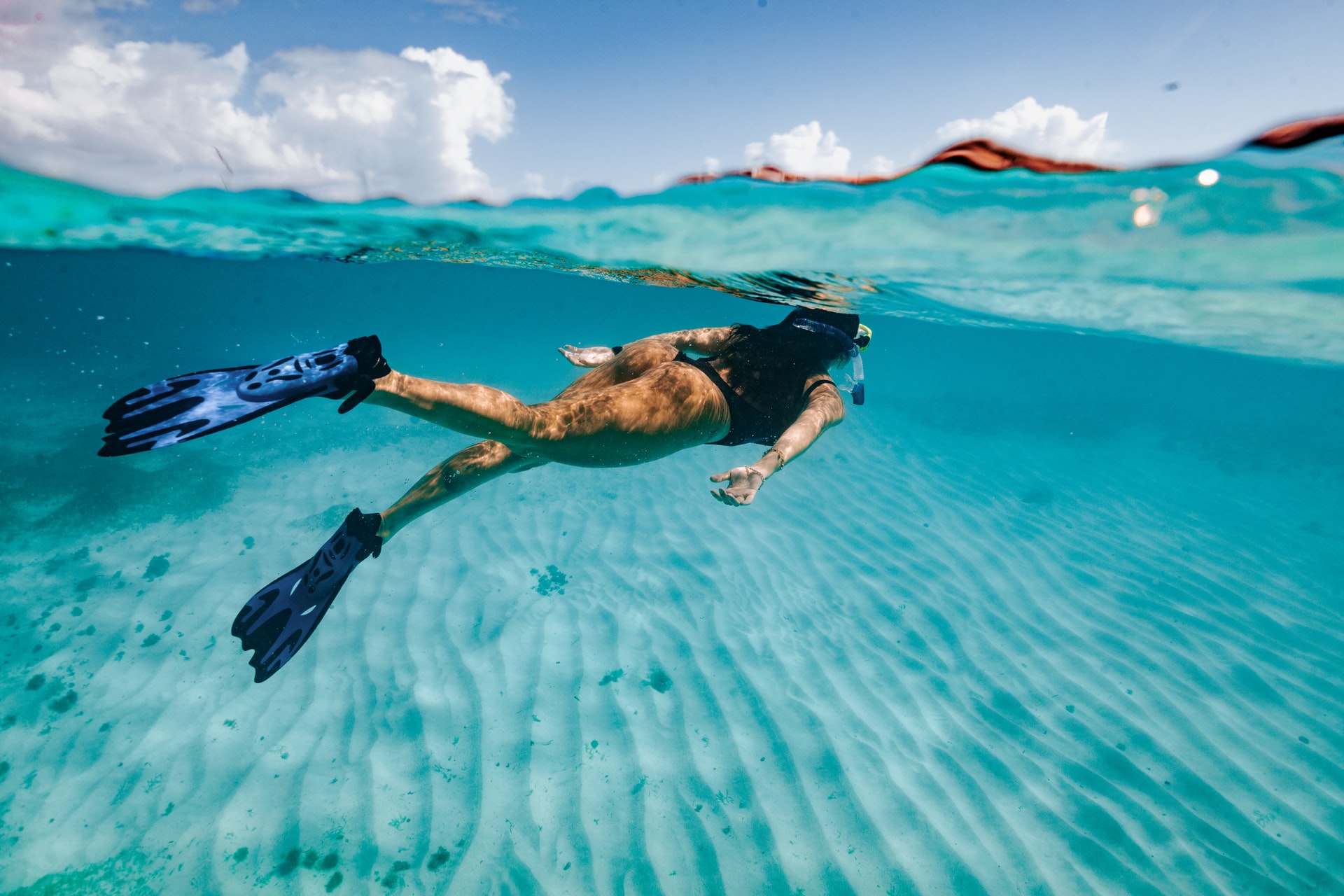
Can Snorkeling Cause Vertigo? (+8 Tips to Avoid It)
-
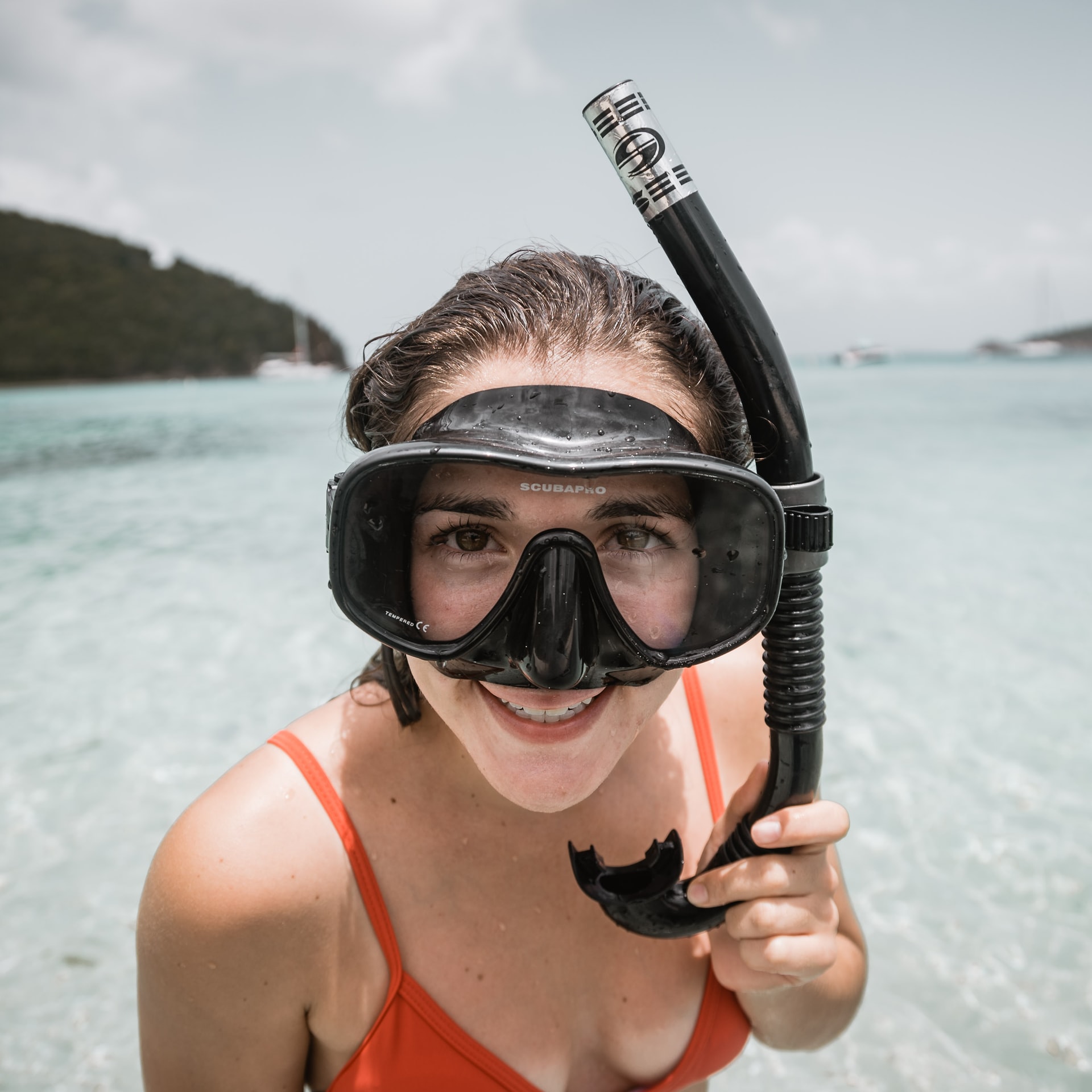
How Do Snorkel Masks Work? (+Regular Vs. Full-Face Masks)
-
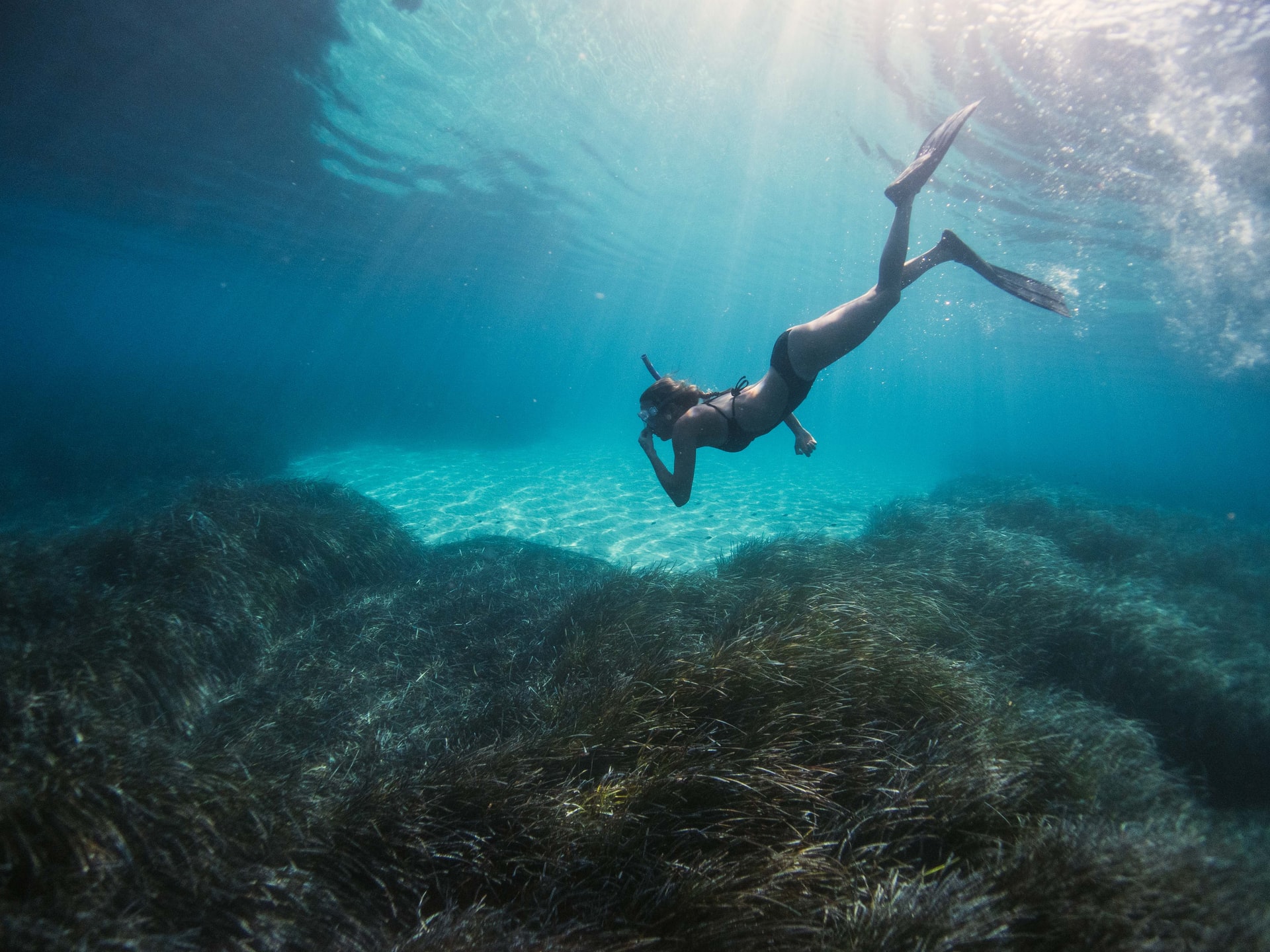
Why Does Snorkeling Make Me Nauseous? (11 Causes & Remedies)
-
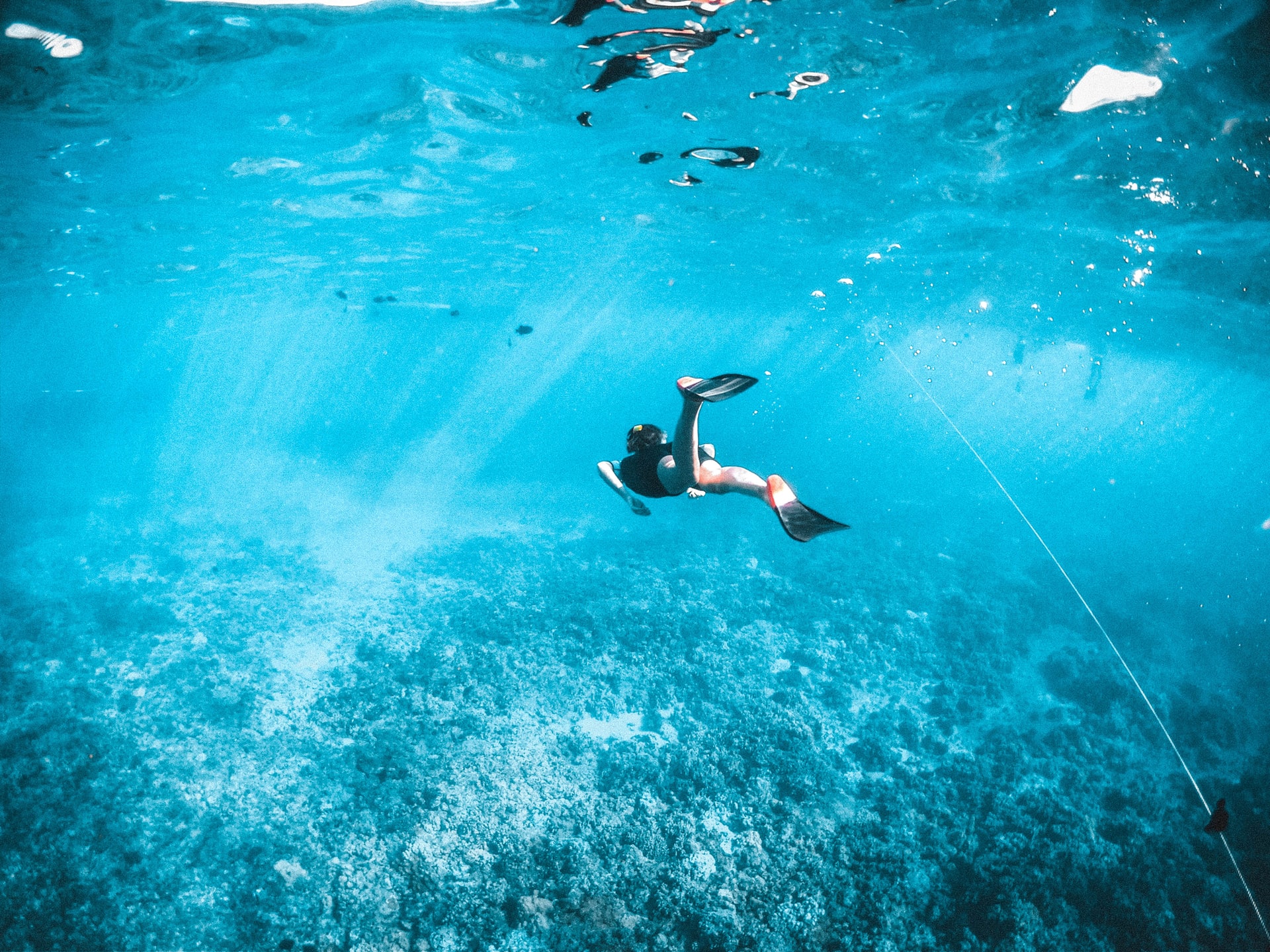
What Does Snorkeling Feel Like? FAQs Answered (for Beginners)
-
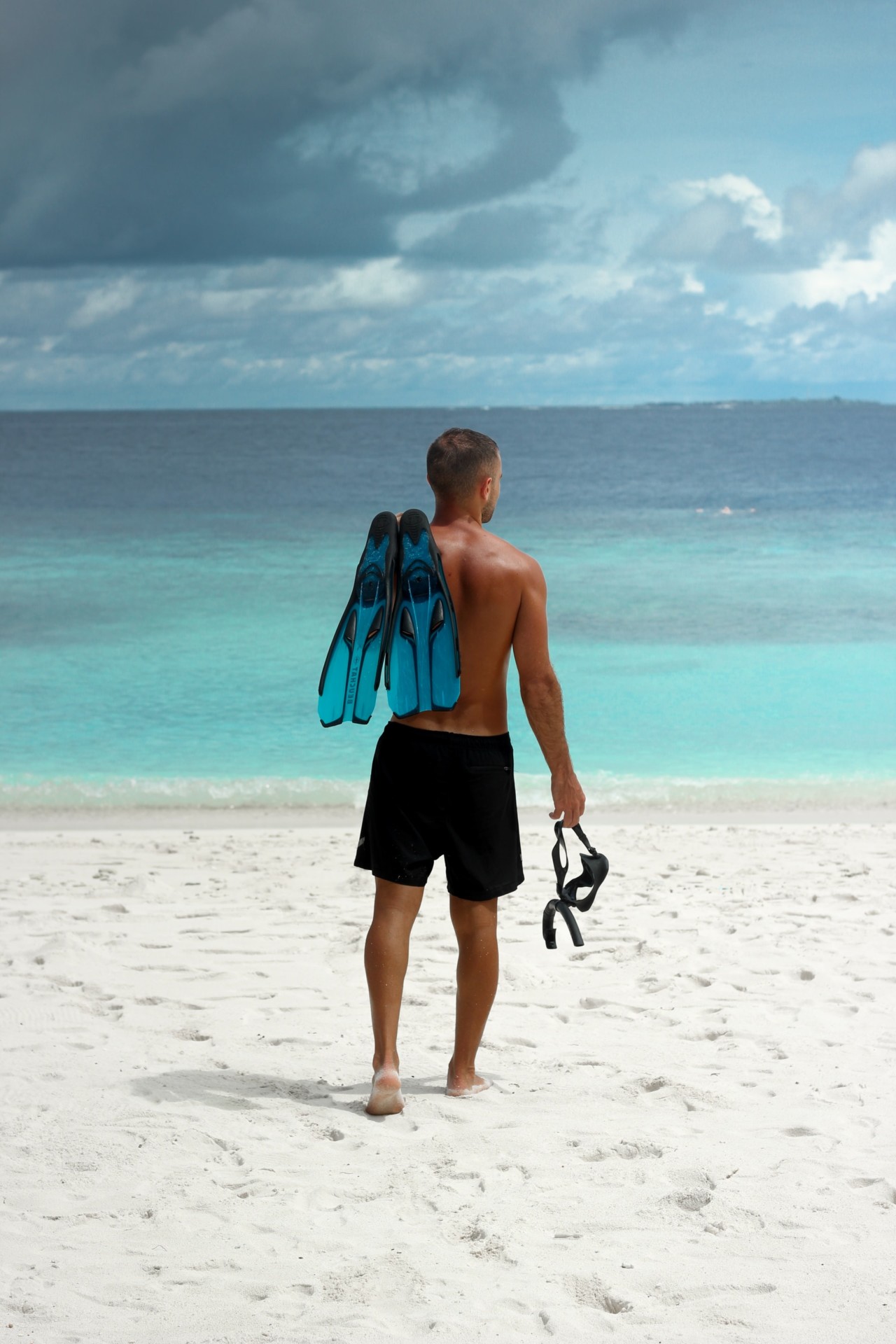
Does Rain Affect Snorkeling Visibility? 4 Ways It Does (+Helpful Tips)






